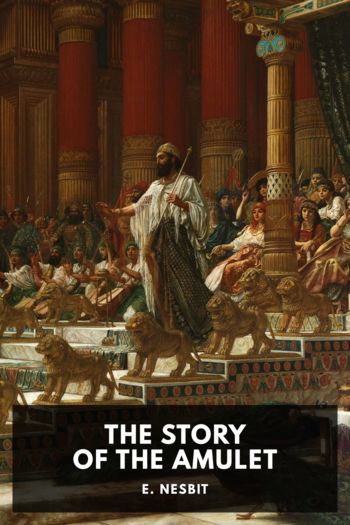IMPOSTURE: Hunters become the hunted in this gripping murder mystery, Ray Clark [classic books for 10 year olds .txt] 📗

- Author: Ray Clark
Book online «IMPOSTURE: Hunters become the hunted in this gripping murder mystery, Ray Clark [classic books for 10 year olds .txt] 📗». Author Ray Clark
“It’s a possibility,” said Anderson.
“If it is a vigilante,” said Reilly, “he or she has been pretty bloody thorough, especially if they’ve been able to find out as much as they have, and stripped the houses, therefore removing any or all evidence.”
“Good point, Sean,” said Gardener. “One might even go so far as to say it has a hint of military precision about it.”
The room descended into a strained silence. The task facing them was almost insurmountable. There was so much to do and it felt like a sheer race against time, with no idea how long they had, especially if a vigilante was at work.
Chapter Thirty
Alan Braithwaite had reached the end of the village where it met the main A65. Spike had done what he wanted, so the pair of them turned back. The weather was reasonably mild for the time of year, but a nice hot cuppa and a cooked breakfast before taking care of business would go down a treat.
As he entered the village he noticed the Frosts had had the wall repaired. And Wendy Higgins was approaching with Pouch.
“Morning, Alan, how are you this morning?”
“I’m well, thank you, Wendy. You?”
“Taking each day as it comes, but we’re okay.” As she said it she glanced down at Pouch.
“I was just looking at the wall, I see they’ve repaired it,” said Braithwaite.
“Yes, I noticed that yesterday. Well, it’s been three months and they’ve had the funerals for them both.”
“I notice the Hunters’ house has a ‘sold’ sign on it.”
“Oh, it’s gone, has it?” asked Wendy. “I spoke to David’s brother, Roger, recently. He said there were a couple of interested parties.”
“I expect he’s glad to be rid of the place,” said Braithwaite, “it can’t hold any good memories for him.”
The dogs sat beside their owners as if they had all the respect in the world for them, no matter how long the conversation went on.
“Terrible business,” said Wendy, “have they caught anyone yet, do you know?”
“Not to my knowledge,” said Braithwaite, bitterly. “People like that should be strung up. Two of the nicest people you could ever wish to meet, cut short in the prime of their life. Three months it’s been and not a bloody word. Wouldn’t have happened in my day. A short spell–”
Wendy Higgins interrupted him. “Yes, I know, a short spell in the army wouldn’t hurt them.” She placed a hand on his shoulder. “It didn’t do you any harm. You said so last time, Alan. And I seem to remember telling you that your army days were behind you. You should leave it to the police.”
“Don’t seem to be getting anywhere, do they?”
“I doubt that will last forever. I can see you still have the bit between your teeth, Alan. How long were you in the army?”
“Twenty-five years.”
“You must have seen some action.”
“You could say that. Made it to the rank of sergeant. I wouldn’t mind showing them lot some action.”
Pouch suddenly stood up and yawned, as if his patience had worn thin.
Wendy Higgins must have noticed. “Well, like I said, there’s no point you getting all revved up about it. I’m sure the police will get to the bottom of it eventually.”
Braithwaite nodded but he doubted it.
As they bade each other a good morning, Wendy Higgins turned and addressed him again. “Was that a new car I saw you driving yesterday?”
He smiled, gently. “Yes, as you keep saying, I ought to take things easy. When you get to my time of life a bit of comfort goes a long way.”
Wendy laughed and agreed. “Love the colour. Reminds me of a car my husband and I had when we were first married. British racing green I think the colour was.”
Chapter Thirty-one
At the DCI’s request, Gardener and Reilly were in an early morning meeting – a breakfast meeting it was called, though no one had anything in front of them. Reilly’s stomach rumbled. Gardener felt pretty sure he would have eaten, and it was merely a protest.
Despite Briggs being the senior ranking officer, his office was no more luxurious than Gardener’s. He had two desks, four chairs – apart from his own – and two filing cabinets. The room was carpeted, magnolia painted walls, with a number of prints attached. Apart from his computer and printer, Briggs had photos of his wife on the desk, and a coffee percolator. A small radio on the window ledge was tuned to BBC Radio Leeds.
Briggs had the policy book in front of him, in which Gardener had filed his report of the Michael Foreman incident.
Glancing at Gardener, he said, “Have we been a little economical with the truth here, Stewart?”
“We’re not sure what you mean, Mr Briggs,” replied Reilly.
“Which means you have.”
Gardener took Briggs through everything they had found to date, emphasising that Michael Foreman was connected to the night of the hit and run and the death of David and Ann Marie Hunter.
Briggs glanced at the report again. Reading through it he quoted from a couple of paragraphs before lifting his head to meet Gardener’s eyes.
“What kind of shape was Michael Foreman in?”
“He’d seen better days,” said Reilly.
“From what we saw,” said Gardener, “he was suffering. He had blistering red skin and there was a lot of swelling to his body.”
“Had he been beaten up?”
“Didn’t look that way to me. His tongue was swollen, so Fitz reckoned he would have had serious respiratory problems, nose and sinus pain.”
“Did he say anything to you?”
“No, all he managed was a scream. Fitz seemed to think that they would almost certainly find fluid in his lungs. There was no sign of diarrhoea or vomiting, though he would have had abdominal pain.”
“What were his movements





Comments (0)